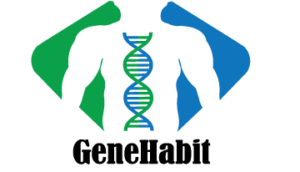Genetic Testing: Your Genetic Partner for Weight Loss
Weight Loss & Obesity: It’s all about understanding your genetics, diet, and Lifestyle!!
For many of us, weight loss can be a difficult task. It has become more challenging with COVID lockdown.
What causes weight gain/obesity?
- Overeating
- Sedentary lifestyle
- Family genetics
- Hormonal malfunction
- Excess sugar consumption
One of the most common misconceptions about weight loss is that one can just “go on a diet” and “exercise.” It turns out every individual has different requirements for their own body based on their genetic makeup, and a general random diet and exercise regimen won’t procure desired weight loss results and weight maintenance. Genetic testing can help to gain insight into- how to customize your diet and exercise based upon knowledge about how effectively your body can burn fat.
Impact of DNA testing on weight loss
Weight loss is difficult for many people, and it can be hard for one person to find a diet and exercise that meets their needs. Generic diets and exercise plans are not personalized to the individual’s needs, making weight loss difficult. Genetic testing can identify the risk for obesity and help in weight loss. Useful data can be obtained from genetic testing, such as determining the best kind of diet and the optimal exercise routine.
Based on your genetic test, you can personalize your lifestyle and food choices and get recommendations to be healthy. Generic diets and exercise patterns won’t help much to lose weight, but your DNA tells you how to do it. Genetic tests analyze over 80 parameters; related to health, fitness, nutrition, and habits.
A DNA test reveals your tendencies to gain weight, fat deposition risk, and high BMI risk that may affect your weight and overall health. With a genetic test, you can:
- Know your genetic obesity risk
- Plan your food intake according to your body’s calorie needs
- Indulge in exercises that work for your weight loss
- Observe symptoms of diseases that you have a high risk for
- Modify your lifestyle to prevent the onset of those diseases
- Plan your preventive health check-ups for the prevention of these diseases
Additional perks of genetic testing:
Knowing personalized obesity risk score
A personalized obesity risk score is useful in determining an individual’s genetic predisposition to obesity and related traits.
Sedentary tendency
A sedentary lifestyle can lead to a variety of health risks, including obesity. Recent research has confirmed some of these risks are associated with leading a sedentary lifestyle can contribute to obesity and hyper cholesterol.
Genetic testing can help you understand how your genes could increase your risk of having a sedentary lifestyle.
A personal approach to nutrition improves energy and protein levels, helps with functional status and quality of life, and helps to maintain an ideal weight.
DNA tests can provide you with diet-based insights. Your genetic makeup might indicate that a particular type of diet will help you lose weight or maintain weight.
Through genetic testing, your DNA profile can be combined with environmental and lifestyle factors, to identify the most effective physical activity to lose weight.
Stress and Sleep Recommendations
Lack of sleep or disturbed sleep, and stress can cause weight gain. Genetic testing identifies which gene markers help keep you healthy by providing insights into your circadian patterns, caffeine intake, and exercise habits.
GeneFIT – For Weight Loss Management With Personalized Reports
GeneFIT uses scientific insights about your genes to identify your risk of being overweight or obese. Your personalized report provides details about your genes that put you at risk and steps you could take to mitigate risk.
Report Includes:
- Gene markers that could result in access weight gain
- BMI Risk Score: Your risk of access or underweight
- Foods to avoid
- Recommended Diet type
For more details click here or connect with our experts
How Genetic Test Report Beneficial for Lifetime?
You can use your genetic test to take control of your weight. You can contact your gym trainer to plan exercises that will maximize the weight you lose. You can also contact your doctor and dietician to plan the future health and nutrition that will help you maintain your current weight.
Here are some of our other products with links –
NutriFit – NutriFit DNA test identifies your essential nutritional demands based on your genetic reports. NutriFit DNA test report gives you a detailed insight into your food sensitivities, food allergies, taste perception, and nutritional intake required for you. A personalized DNA-based diet recommended by nutritionists is based on your report to maximize your health benefits. Click here to read more about NutriFit test or connect with our experts
FitLife – FitLife DNA test gives you a holistic report about your fitness. The personalized report gives you an insight into the optimal type of exercise, aerobic capacity, and injury risk for you. Achieve your desired fitness through DNA based nutrition and fitness program to transform your fitness routine. Click here to read more about the FitLife test or connect with our experts



















